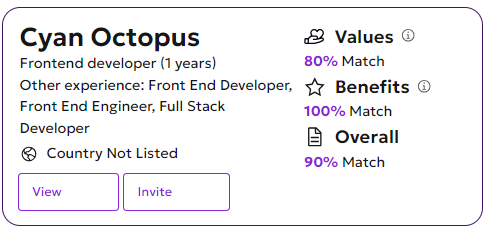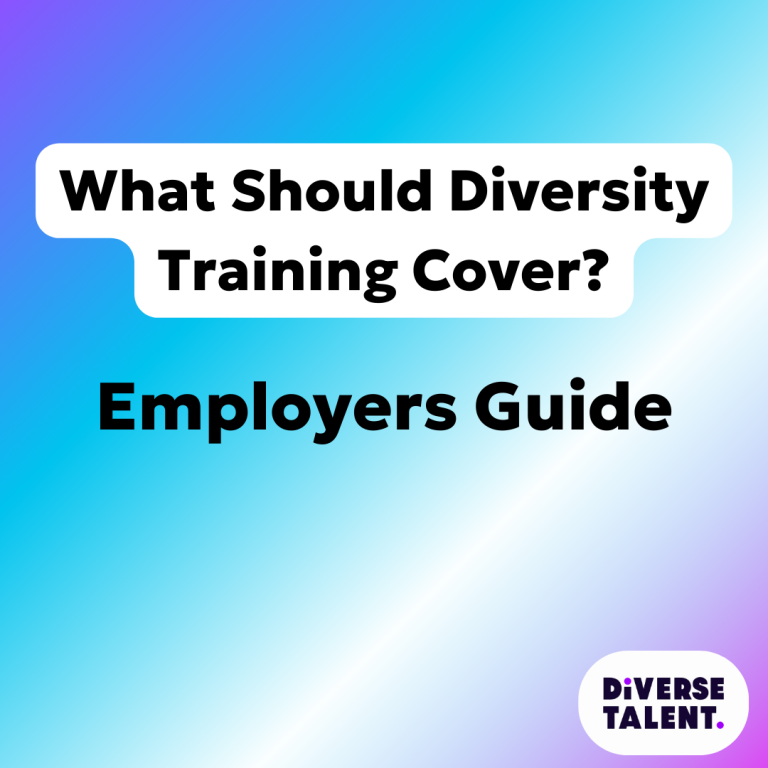More Than Meets the Eye
In the UK and Ireland, many talented individuals are consistently overlooked due to rigid hiring practices that favour conventional career paths. For example, research shows that 80% of jobs in the UK are secured through informal networks, leaving people from less traditional backgrounds at a disadvantage.
Moreover, a study by Centre for Social Justice found that over 30% of unemployed people with disabilities feel their lived experiences are undervalued in the workplace. And it’s not just about disabilities. 60% of ex-offenders in the UK remain unemployed a year after release, despite many having skills and the motivation to work. That’s a lot of untapped potential.
When we talk about inclusive workplaces, part of this conversation has to include expanding our talent pools.
1. Transferable Skills: Real-World Experience Matters
People with lived experiences often have a treasure trove of transferable skills. They’ve developed resilience, adaptability, problem-solving abilities, and emotional intelligence in ways no textbook or lecture could ever teach.
Think about it. Someone who’s navigated life challenges like managing a household, raising children, or working through mental health struggles has probably developed some seriously impressive time management, conflict resolution, and multitasking skills. These are the kinds of skills that can easily transfer to any workplace.
When you hire for potential rather than just qualifications, you’re opening the door to candidates who can bring fresh perspectives and a hands-on approach to problem-solving.
2. Academia Doesn’t Always Equal the Right Fit
Let’s get something straight—just because someone aced their exams doesn’t mean they’re the perfect fit for your company. There’s this myth that academic achievement equals job readiness, but the reality? It doesn’t.
In fact, focusing too much on formal education might lead you to overlook people who have the right mindset and work ethic but didn’t have access to traditional academic pathways. Lived experiences often foster grit, determination, and creativity—traits that are essential in today’s fast-paced work environment.
Take a look around at some of the most successful entrepreneurs and leaders. How many of them dropped out of school or went a non-traditional route? Plenty. They succeeded not because of their academic pedigree but because of their hustle and their ability to think outside the box. This is what people with lived experiences bring to the table—real, authentic insight and creativity.
3. How Can Employers Make the Shift?
So, how can employers start hiring people with lived experiences? It’s easier than you think:
- Rewrite Job Descriptions: Focus on the skills and mindset you need, rather than just qualifications or formal experience. Make it clear that lived experiences are valued.
- Inclusive Hiring Practices: Review your interview process. Are you asking questions that allow candidates to showcase their problem-solving skills and adaptability? Or are you too focused on technical jargon?
- Partner with Organisations: Work with nonprofits or recruitment agencies that specialize in connecting employers with candidates from underrepresented groups. They can help you tap into talent pools you might not even be aware of.
- Inclusive job boards, like DiverseTalent.ai, are also great places to find individuals who bring unique experiences to the table.
4. Skills-based hiring
Looking at a candidate’s abilities over their academic background, offers a more inclusive and effective approach. It allows employers to focus on competencies like problem-solving, adaptability, and creativity—traits often developed through experience rather than in a classroom.
With advancements in AI-powered learning and development platforms, employees can now upskill quickly and efficiently, further reducing the need for rigid educational qualifications.
In a fast-paced business world, skills-based hiring is more agile, making it easier to fill roles with capable people who can adapt and learn on the job.
As AI technology continues to transform industries, the ability to upskill rapidly has become a game-changer, making experience-based hiring even more important for fostering innovation and maintaining competitiveness.
DiverseTalent.ai ensures employers use skills based hiring from the get go!
Our anonymous candidate database showcases job seekers’ experience, skillsets, and personal values (such as wanting to work for LGBTQAI+-friendly employers).






